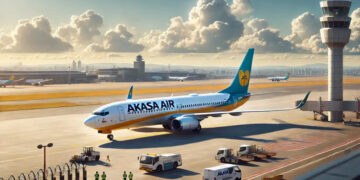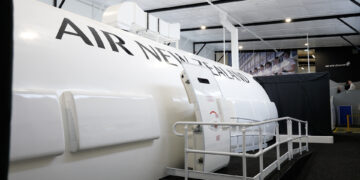Co-op funds food organisations that don’t damage UK peatlands

Co-op has awarded its third round of funding to two more organisations that can grow food without damaging UK peatlands from the Co-op Foundation’s £3.5m Carbon Innovation Fund.
Mushroom farm Rhyze Mushrooms Co-op has received £148,200 to develop a new type of compost using worms that was easily replicable and at a large enough scale to be used on farms, the retailer said.
This method would make it possible for market gardens to produce their own high-quality peat-free compost to grow vegetables.
The second organisation, Algae Products International, has been awarded £150,000 to develop soil additives from algae without using peat or emitting carbon. These soil additives could then be used for fertiliser or as alternatives to grazing for animals.
Co-op explained peatlands were some of the most carbon-rich ecosystems on earth, storing twice as much carbon as the world’s forests. They help to cool the planet, support biodiversity and reduce the risk of flooding.
Peatland is often drained for growing crops and broken up to put the peat into compost because it is so nutrient-rich. This degradation of peatland caused greenhouse gas emissions, biodiversity loss and destroyed some of the UK’s most important ecosystems, Co-op added.
“As we announce the third round of partners for the Carbon Innovation Fund, I’m struck by the ingenuity and creativity of the projects we are funding,” said Co-op Foundation CEO Nick Crofts.
“We need to co-operate to find solutions to the climate and nature crisis we face. Our partners’ brilliant ideas and innovation for harnessing the power of nature without harming it are vital to build a food system that restores and protects important habitats like peatland.”
There are five other organisations creating new ways to produce food without damaging UK peatlands which have also been awarded from the Carbon Innovation Fund.
These include Lancashire Wildlife Trust, which received £148,181 to develop pioneering sustainable techniques for growing food crops on peat soils, and Wildlife Trust BCN, which was awarded £150k to test new ways to sow, manage and monitor crops sustainably on peatlands and test their suitability as food for livestock.
The Carbon Innovation Fund, which is the largest environmental partnership between Co-op and its charity the Co-op Foundation, is funded by Co-op donations from the sale of compostable carrier bags in the UK, as well as the foundation’s own funds.
In 2021, Co-op became the first UK supermarket to completely end the sale of peat-based bagged compost in all its stores. Last year, Co-op also announced a three-year partnership with the Royal Society for the Protection of Birds, donating a £1m from the sale of its compostable carrier bags to the charity to aid with its peatland restoration projects.
Round three of the Carbon Innovation Fund follows on from a £1.4m grant in round one, and over £1m in round two.
Co-op head of ethics, sustainability and policy Cathryn Higgs said: “We are delighted that the sales of our Co-op compostable carrier bags continue to fund the Carbon Innovation Fund. Protecting and restoring UK peatlands is critical to Co-op’s Climate Plan and this fund enables deeper impact through new innovative partnerships to produce delicious food while reducing our carbon impact and protecting nature.”
Leave a Reply Cancel reply
- Trending
- Comments
- Latest
The Roth 401(k) is becoming more common
GME, MSTR, HMC and more
Stocks making the biggest moves midday: AAL, AVGO, JPM
TTMiles
Travel with me and experience each trip as a magical chapter in my travelogues. Come along with me as we discover the marvels of the globe one engrossing tale at a time.
Read more
Categories
Recent News
The Roth 401(k) is becoming more common
© 2024 Trilliontravelmiles - The one stope travel news site by Trilliontravelmiles.















































